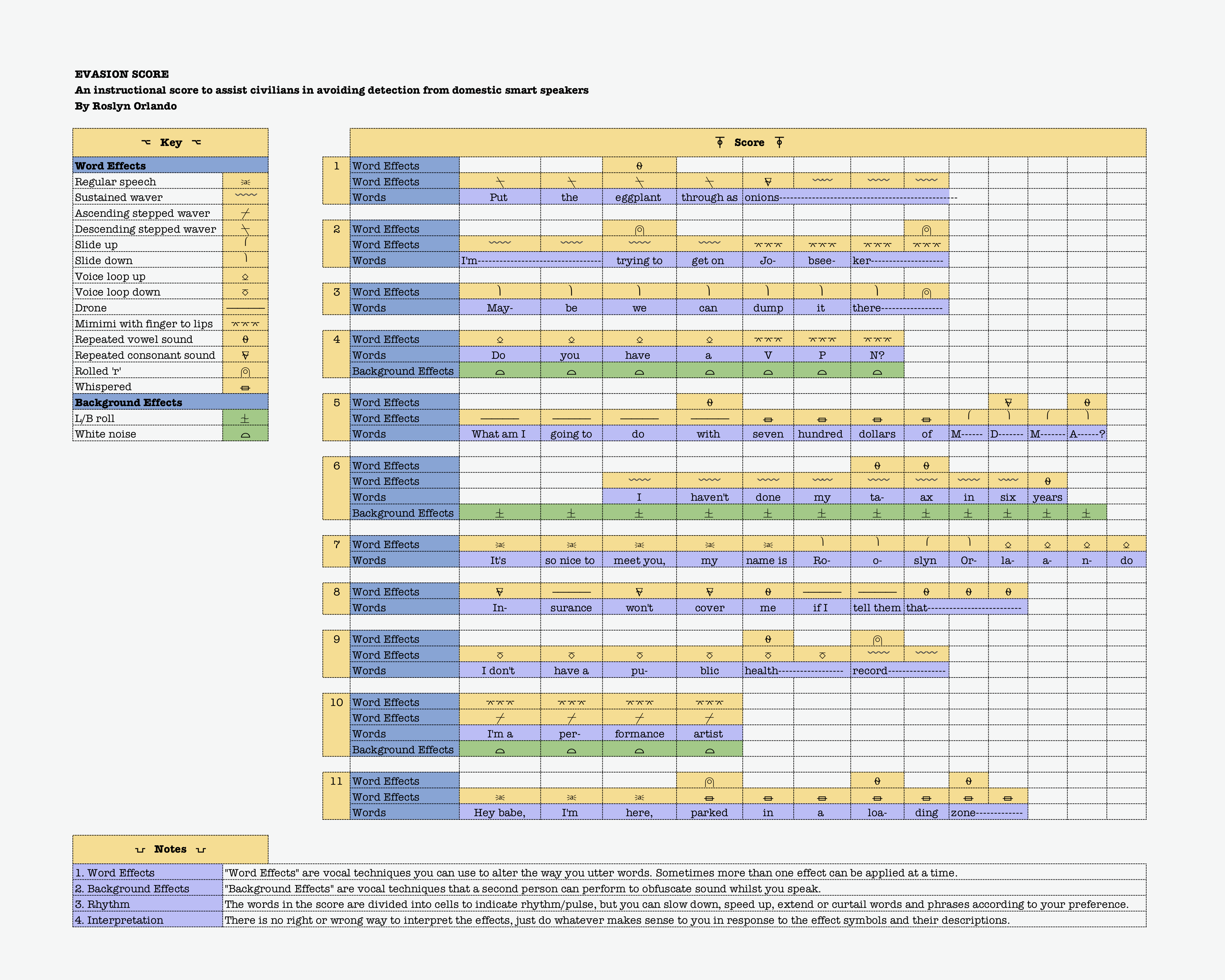EVASION SCORE is an ongoing project that investigates relationships between the voice, technological surveillance, and the politicisation and militarisation of words and phrases in everyday speech.
In 1997, the Linguistic Data Consortium called for native English speaking members of the U.S. public to participate in an early project on Large Vocabulary Conversational Speech Recognition (LVCSR), sponsored by the Department of Defense. Speakers were sourced via the internet, publications (advertisements), and personal contacts. The LDC collected and transcribed 120 unscripted 30-minute telephone conversations. Most participants called family members or close friends. The participants were made aware that their telephone call would be recorded, as were the call recipients. The call was allowed only if both parties agreed to being recorded. Upon successful completion of the call, the caller was paid $20 (in addition to the call being toll-free). The resulting corpus of conversational speech was an early milestone in developing the natural language processing, machine learning and artificial intelligence technologies we are familiar with today.
For 'Evasion Score 3: CallHome', I acquired and downloaded the recordings and transcriptions from the CallHome English speaking corpus. The conversations are banal and often intimate, and I have selected excerpts that reveal important and poignant information about the participants' lives, emotional states, hopes, desires and daily activities.
I have devleoped a register of vocal techniques designed to render specific words and phrases unintelligible to machines that can now listen (thanks to the very utterances of these words 20 years ago), such as domestic smart speakers, smart phones and other speech recognition devices.
The score proposes a way to re-perfrom these everyday conversations within the context of contemporary surveillance capitalism.


